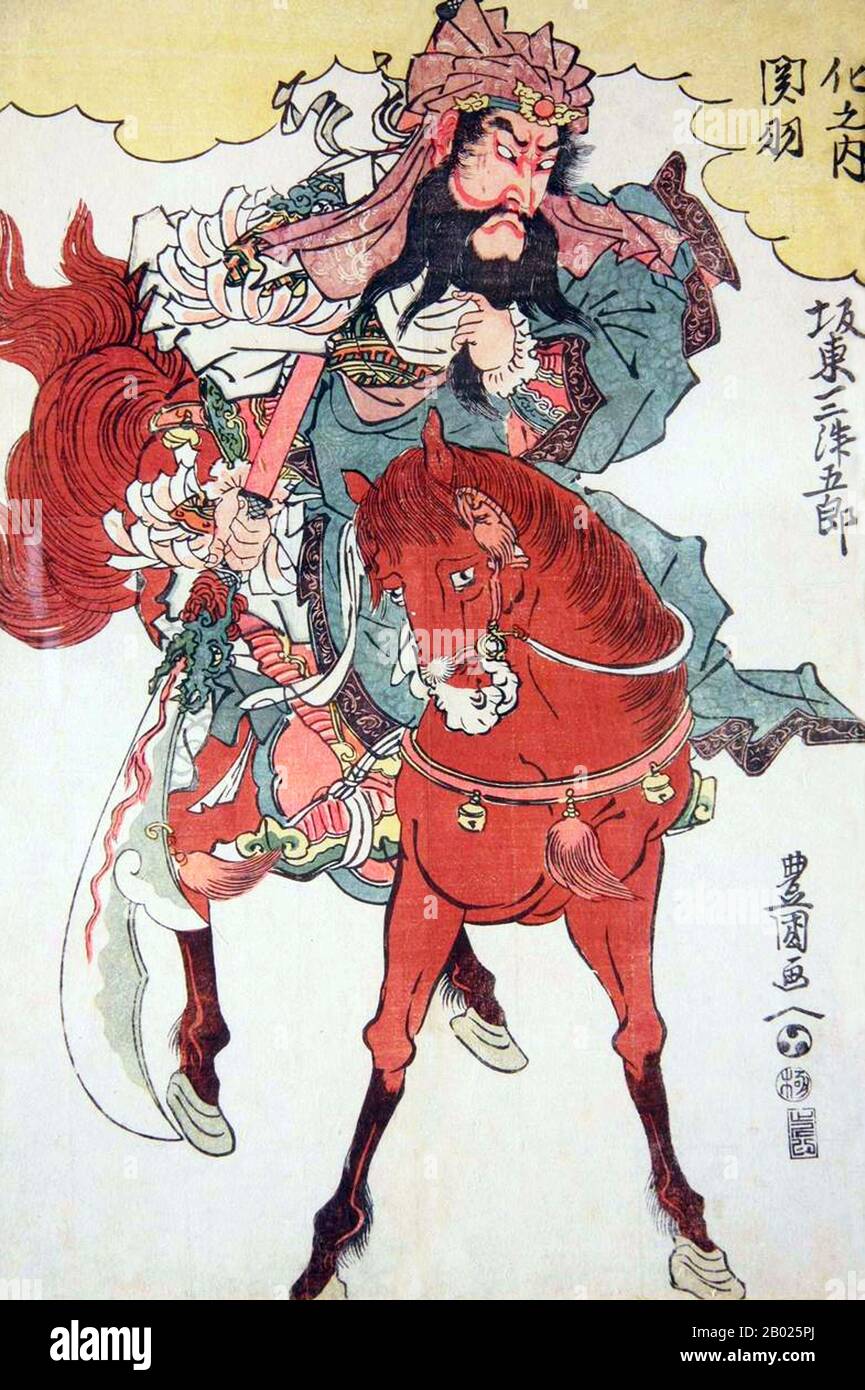Guan Yu (died 219), style name Yunchang, was a general serving under the warlord Liu Bei in the late Eastern Han Dynasty of China. He played a significant role in the civil war that led to the collapse of the Han Dynasty and the establishment of the state of Shu Han in the Three Kingdoms period, of which Liu Bei was the first emperor. As one of the best known Chinese historical figures throughout East Asia, Guan's true life stories have largely given way to fictionalised ones, most of which are found in the historical novel 'Romance of the Three Kingdoms' or passed down the generations, in wh

Image details
Contributor:
CPA Media Pte Ltd / Alamy Stock PhotoImage ID:
2B025PJFile size:
50.7 MB (1.6 MB Compressed download)Releases:
Model - no | Property - noDo I need a release?Dimensions:
3434 x 5158 px | 29.1 x 43.7 cm | 11.4 x 17.2 inches | 300dpiDate taken:
20 January 2013Photographer:
Pictures From HistoryMore information:
This image could have imperfections as it’s either historical or reportage.
Guan Yu (died 219), style name Yunchang, was a general serving under the warlord Liu Bei in the late Eastern Han Dynasty of China. He played a significant role in the civil war that led to the collapse of the Han Dynasty and the establishment of the state of Shu Han in the Three Kingdoms period, of which Liu Bei was the first emperor. As one of the best known Chinese historical figures throughout East Asia, Guan's true life stories have largely given way to fictionalised ones, most of which are found in the historical novel 'Romance of the Three Kingdoms' or passed down the generations, in which his deeds and moral qualities have been lionised. Guan is respected as an epitome of loyalty and righteousness. Guan was deified as early as the Sui Dynasty and is still worshipped by many Chinese people today, especially in southern China, Taiwan, Hong Kong, and among many overseas Chinese communities. He is a figure in Chinese folk religion, popular Confucianism, Taoism, and Chinese Buddhism, and small shrines to Guan are almost ubiquitous in traditional Chinese shops and restaurants.